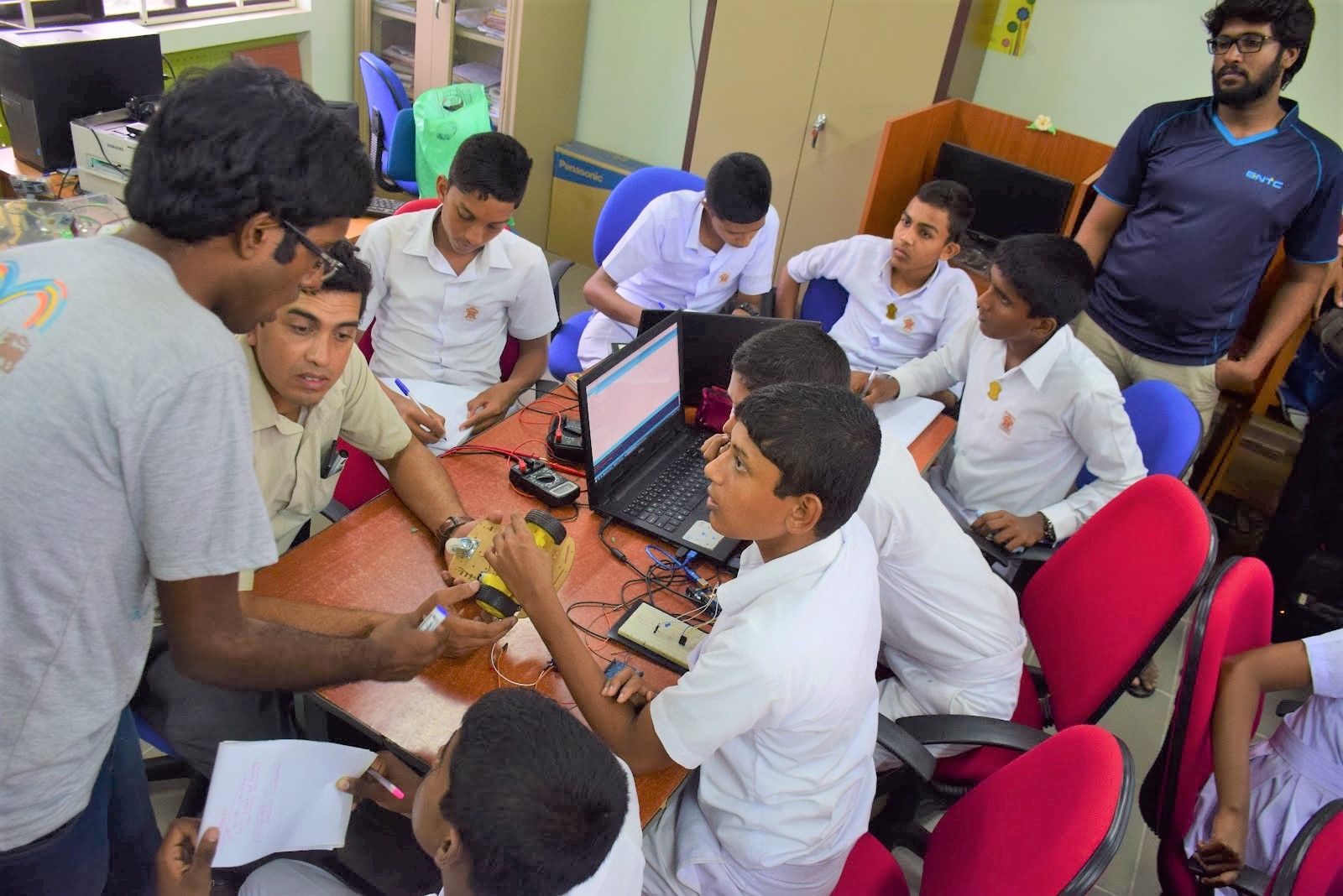Basic Robotics Workshops for Students of Over 20 schools
As with all developing countries, students of Sri Lanka are not exposed to the latest technologies. Students are usually exposed to programming (mostly on paper) in age 16 if only they chose an optional subject: ICT. To introduce the wonders of microprocessors and to unleash the limitless possibilities by untapping the creativity in our students, my team decided to conduct arduino robotics workshops around Sri Lanka.
From August 2017 to December 2017, our team organized and conducted six workshops for over 160 students from over 20 schools. Following is the slideshow I prepared for my presentation for students who are absolute beginners for programming and robotics.
The students were very enthusiastic. Being absolute beginners to programming, they quickly learnt to code within a matter of hours and started modified the for loop and while loops to do whatever they want by the end.
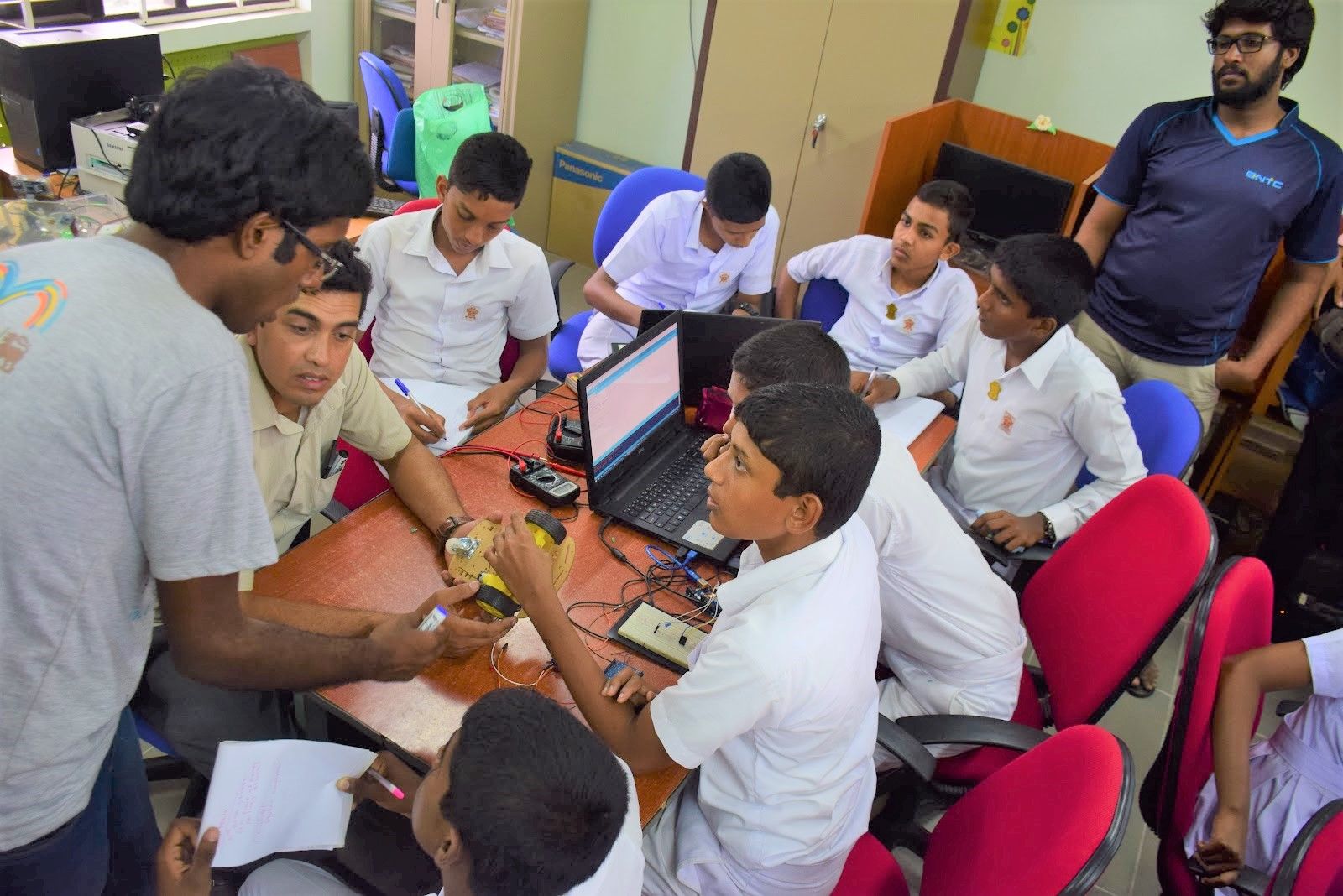
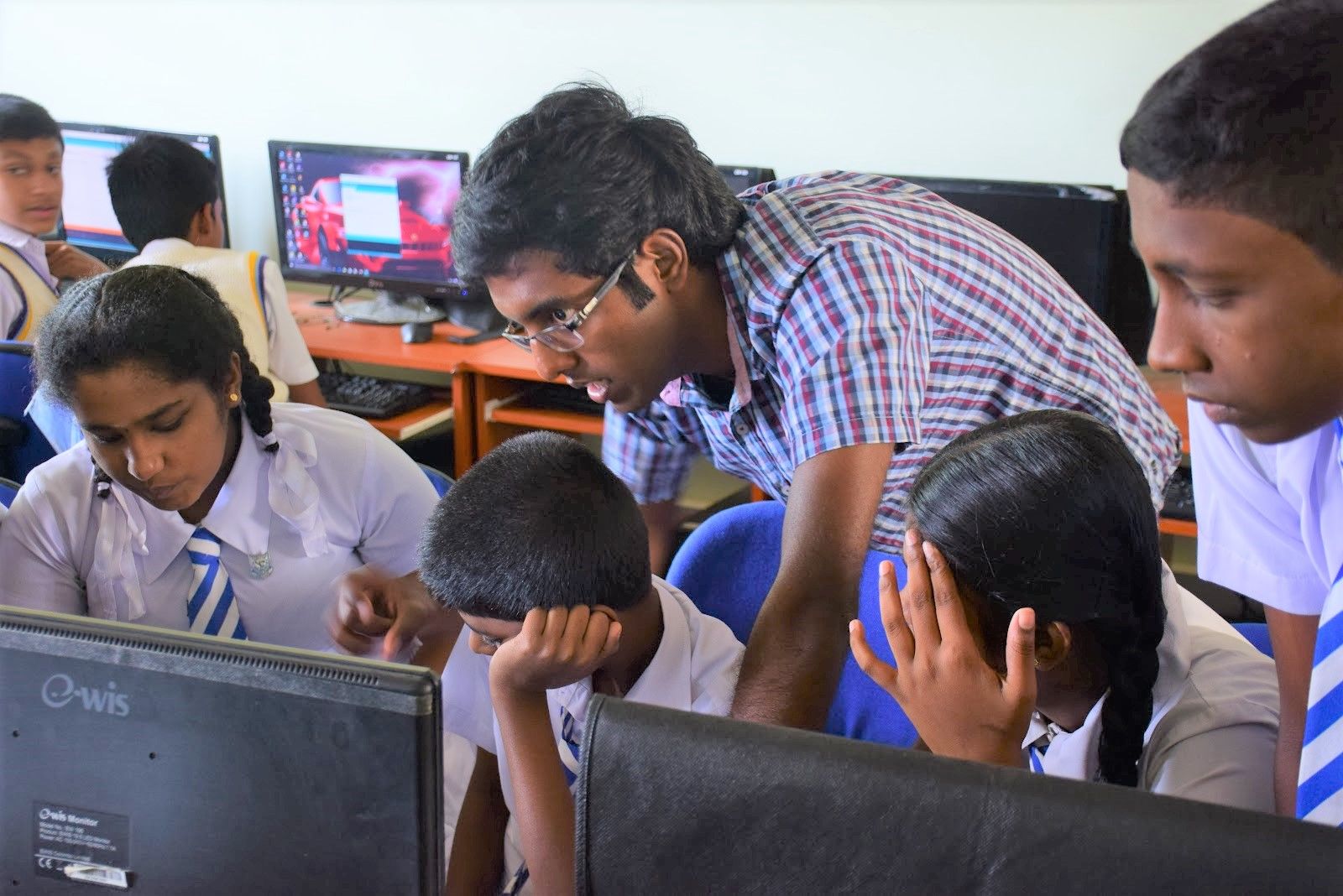
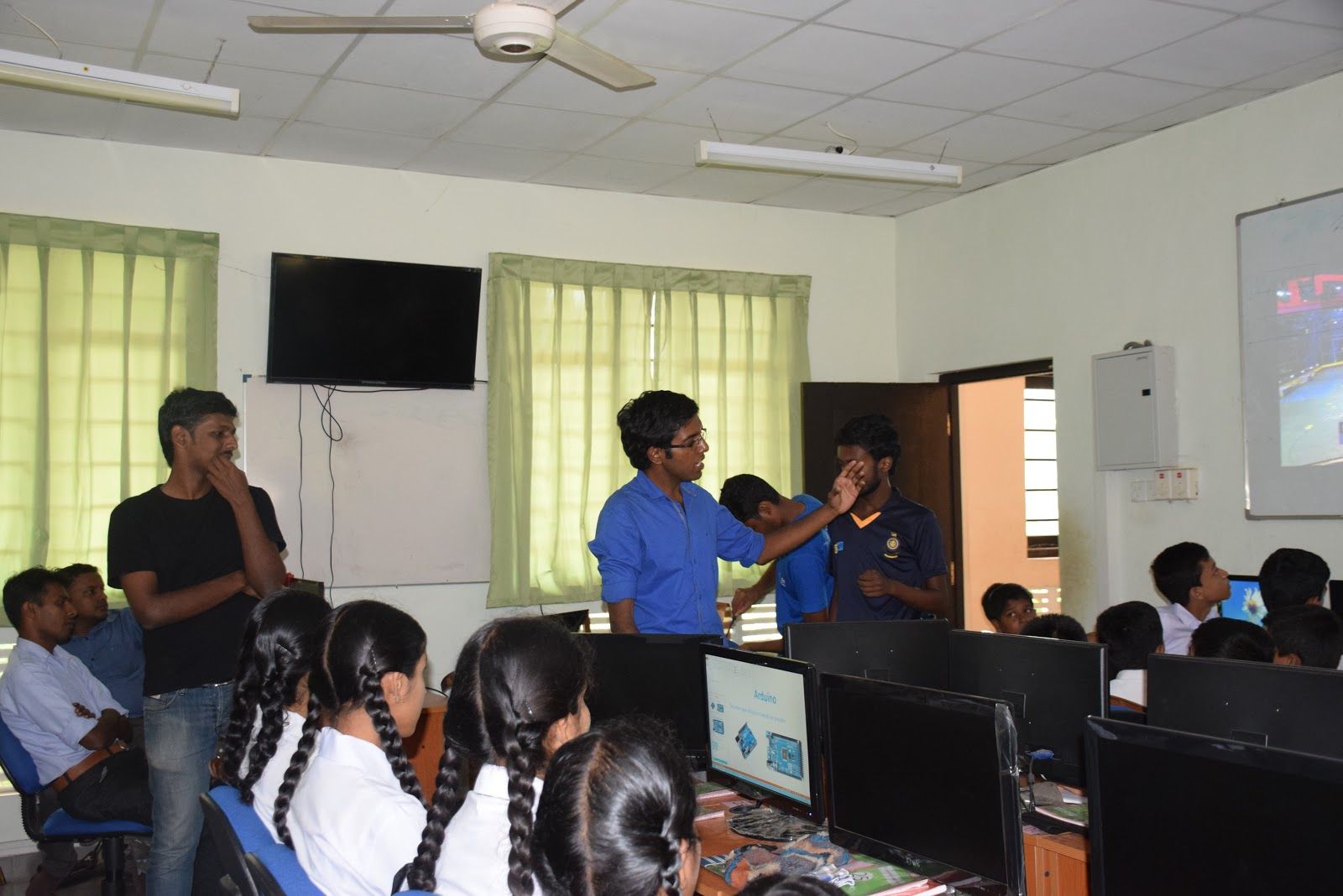
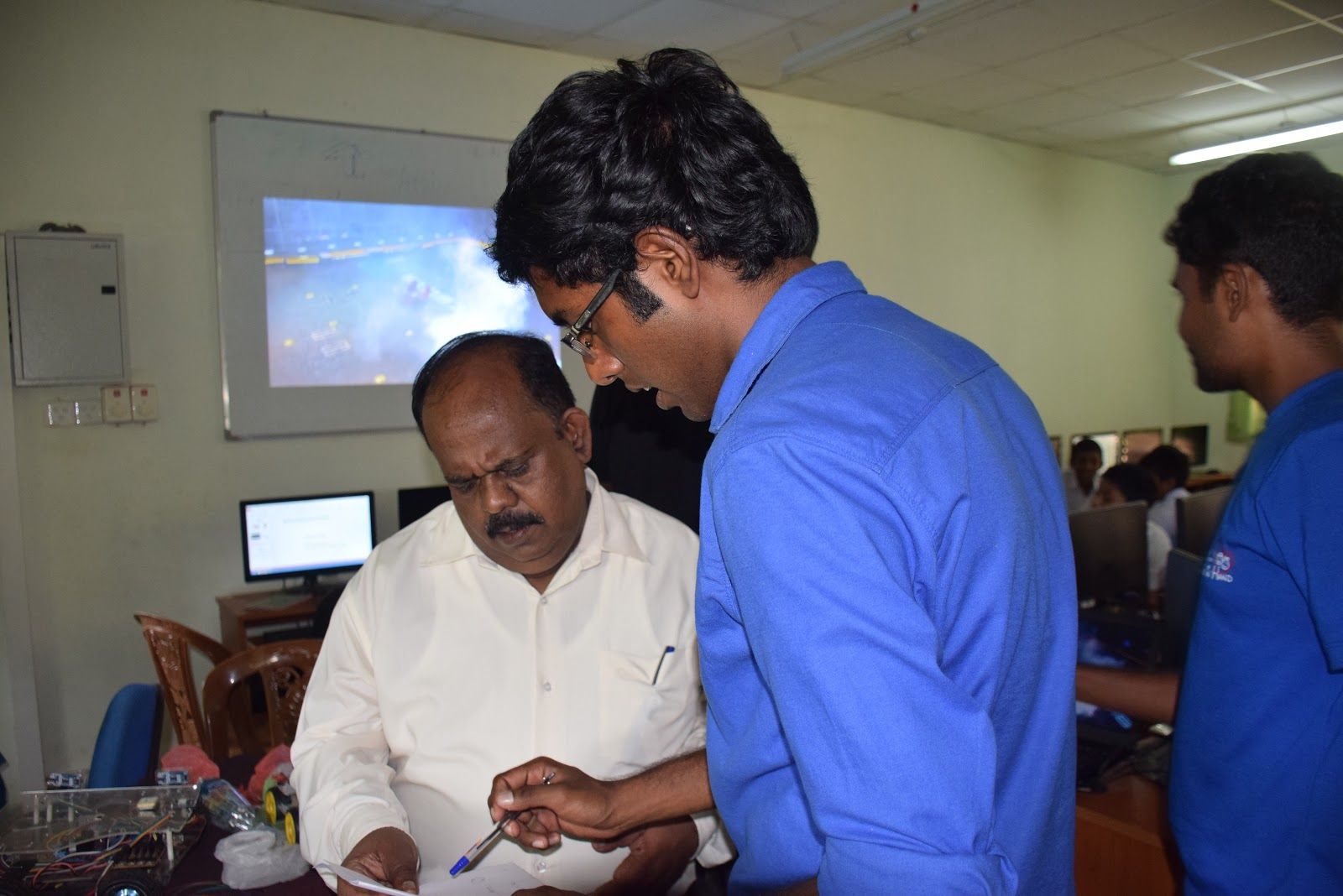
We faced several difficulties during the workshops:
- No funds were provided, we spent our own money on travel and our refreshments
- We couldn't obtain electronic items (breadboards, jumpers, arduino boards). We collected our own items and our friend's items.
- I took my own robot (which I built for evaluation for a module) to all the workshops for demonstration. It was mishandled and broken in half in the 4th workshop.
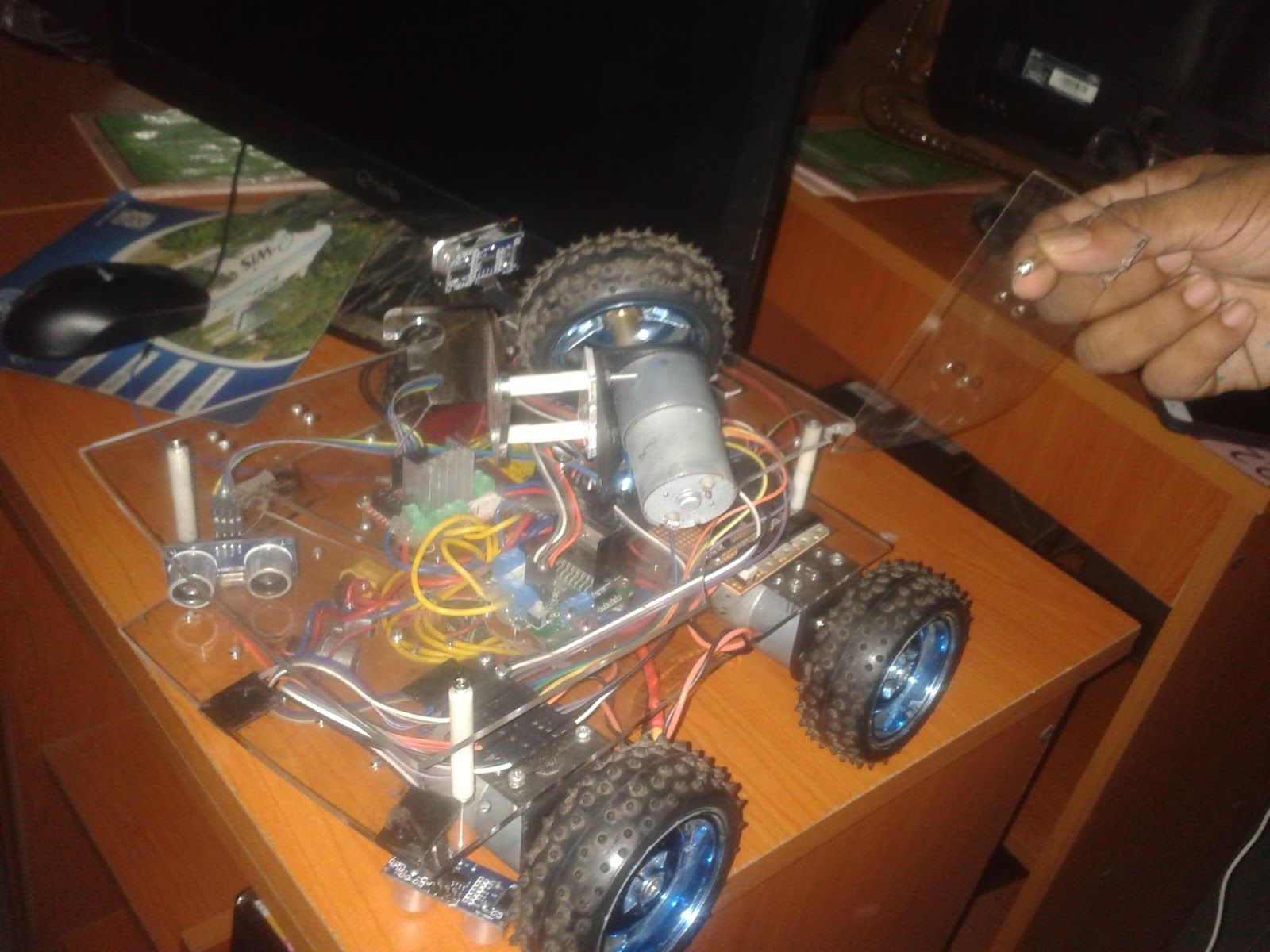
Following is a slideshow I created for a nationwide exhibition to explain PID concepts for newbies.
Few points which I learnt from my experience
- Kindly choose schools without much exposure. Big schools, which already have robotics and electronics clubs are able to conduct annual workshops themselves.
- Make the key objective of your workshops: creating self-sustainable electronics and robotics clubs.
- The critical key factor for the success of this endeavour is a teacher. Find schools with at least one teacher who is truly motivated to take this forward. Else, chances of success are slim.
- Electronics items: Ardunio kit, soldering kit, multimeter..etc cost about 7000 rs in total. Need few of these kits for each school. Funding is needed to purchase them.
- Try to teach via a top-down / problem -> solution approach. Start with why, introduce Arduino...etc as black boxes, explain why they are needed, ask them to put them together and do some interesting things, while explaining stuff like C++ syntax on the go.
- The bottom-up approach (first explain all components, their internal architecture and then try to put them together into a solution for a hypothetical problem) is the worst.
- Mentor them for months, continuously. Answer their questions in WhatsApp, help them with additional short zoom sessions...etc.
We are organising future sessions for schools & universities. Kindly let us know if you would like to contribute.
